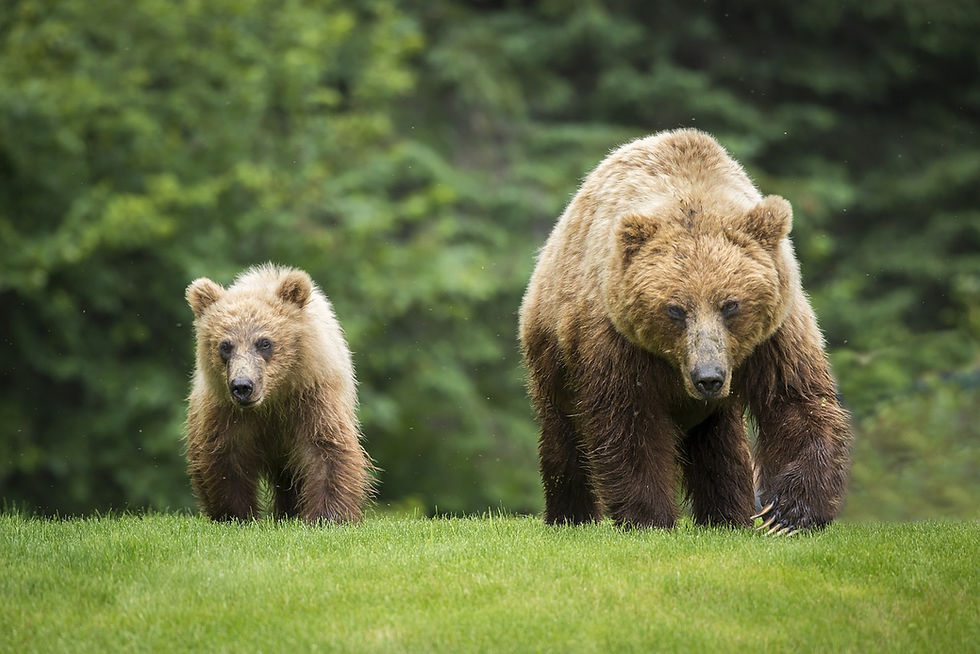Understanding Black Bear Behavior and the Importance of Bear-Resistant Bins
- Feb 15, 2024
- 2 min read

Encountering a Black Bear: Steps to Take When you come across a black bear, it's crucial to stay calm and not panic. A noisy bear is generally trying to intimidate you rather than prepare for an attack. Here are some tips on how to handle a bear encounter safely:
Do: Slowly back away, keeping the bear in sight, and wait for it to leave. If the bear doesn't leave, try to make yourself look larger by throwing objects, waving your arms, and making noise. Always have bear spray ready as a precaution.
Don't: Attempt to run, climb, or make direct eye contact. Never approach the bear, feed it, or let your dog off its leash.
If a Bear Attacks: Your response should be to use bear spray and fight back with everything you have if it's a predatory attack. Playing dead is only advisable if a mother bear with cubs initiates the attack.
Dog Owners: Keep your dog leashed in bear territories to prevent any provoked attacks on you or your pet.
Bear-Proof Garbage Bins: Why They Matter
In bear country, managing attractants is key to preventing bear encounters. Bear-resistant garbage bins and food lockers are critical in keeping bears away from human habitats. These bins are designed to withstand bears' attempts to access the food, thereby reducing the likelihood of bears associating human areas with food sources. Here are some useful tips:
Secure Garbage: Always use bear-resistant bins for garbage disposal. Ensure lids are securely locked.
Food Storage: In campgrounds and parks, store all food items in designated bear-resistant food lockers.
Cleanliness: Regularly clean the bins to minimize odors that attract bears.
When Outdoors in Bear Country
Bears are naturally curious and can be dangerous. Reducing surprises and being aware of your surroundings are key. Make noise to alert bears to your presence, especially in areas where bears may not see or hear you coming.
Bear Warning Signs: Understand and recognize bear behavior. Defensive bears might salivate, exhale loudly, and make various sounds. A bear standing on its hind legs is often trying to get a better view or scent, not necessarily showing aggression.
Reporting Encounters: After any bear encounter, report it to local authorities to help manage bear activities and alert others in the area.
Self-Defense: Only as a last resort should you consider taking action against a bear. Any action must be lawful, safe, and humane.
Conclusion
Being bear-wise means understanding bear behavior, taking precautions to avoid encounters, and knowing how to react if you do encounter a bear. The use of bear-resistant bins and food lockers plays a crucial role in preventing bears from becoming accustomed to human food sources, which can lead to dangerous situations. Always prioritize safety for yourself, your loved ones, and the bears who share our outdoor spaces.




